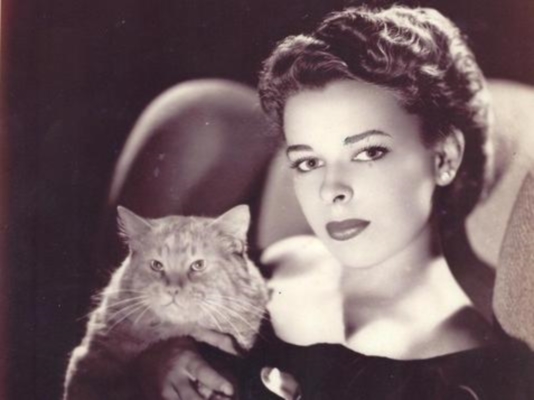
 Cubanet, Jorge Luis Gonzalez Suarez, Havana, 21 September 2015 – The last time I spoke with Naty Revuelta by phone, she said, “I fell and I can’t go out alone any more. I’m here at home all the time, come whenever you like.”
Cubanet, Jorge Luis Gonzalez Suarez, Havana, 21 September 2015 – The last time I spoke with Naty Revuelta by phone, she said, “I fell and I can’t go out alone any more. I’m here at home all the time, come whenever you like.”
I never saw her again alive. Shortly afterwards came the news of her death, last February 28. A few months earlier she had been admitted to DIMEQ Hospital for a stroke, which on that occasion she survived.
I had the pleasure of meeting Naty Revuelta when I was working at the “El Ateneo” bookstore on Linea Street in Vedado. She had been invited to participate in a conversation with Rafael Alcides, who was her friend. At the end of the discussion, Naty Revuelta engaged in a dialog with me and asked me to get her a copy of “Destinatario: José Martí,” a compilation of Martí’s letters and notes prepared by Luis Garcia Pascual. She gave me her telephone number and address to deliver the parcel, which I did very quickly.
This event allowed me to open the doors of her home, thus forming a friendship that lasted until the final years of her life. During this time, I came to learn many anecdotes from her interesting and eventful life, from the times of her relationship with Fidel Castro, when she joined the July 26 Movement.
She told me on one occasion about when she was sent to France in the early 1960s, to contact the scientist Andre Voisin. She was entrusted with the mission by Fidel Castro, who wanted to bring Voisin to Cuba because he had done research on the genetic improvement of cattle.
Naty showed me photos of Voisin and his wife, with dedications to her, as undeniable proof of what she was telling me. She explained to me the details of the steps she had to take through the embassy to locate him and convince him to come to Cuba.
Once she showed me a handwritten letter from Fidel Castro, when he was in the Model Prison on the Isle of Pines. It had been written one New Years. The missive, although it started with phrases of love, then became a discourse where he expounded on his ideas about the revolutionary struggle.
The day she showed me the letter Naty, it seemed, felt the weight of frustration and abandonment. She asked me, “Do you think this is a letter from a person in love?”
Then she complained about feeling relegated, because he had not publically recognized her active participation in the clandestine fight against the Batista regime, and for having been fired from her work in the Cuban Petroleum Institute without justification. She, who had sold her jewelry to amass the money to buy arms for the attack on the Moncada barracks, on 26 July 1953.
One day the conversation dealt with her daughter, Alina Fernandez. She showed me a Spanish magazine with an interview, where among other things she affirmed that Fidel Castro was Alina’s father.
According to what Naty told me, until that time, almost by mutual agreement, neither she nor Fidel had spoken publically about the matter.
She told me about her daughter’s first wedding and the incidents she had with the bodyguards because of the beverage Fidel Castro brought. She told me about it from the terrace of the apartment that Alina occupied facing her residence. There were several more comments on the relationship between father and daughter, about the lack of communication between the two of them, finally telling me, “Because of this she didn’t even want to see him.”
Naty’s personal charisma was impressive. A product of the mid-bourgeoisie, her elevated culture was part of her interesting personality, but she expressed herself without ostentation. She was simple, treating everyone she talked with affably and cordially, without distinction of rank.
She had very beautiful blue eyes, large and expressive. Her small stature did not match her voice, which was strong, but with a refined accent.
The great room of her house seemed like an art gallery, with the number of paintings and valuable objects it contained. Prominent was a large portrait of her, painted in oil during her youth. As could be seen in the portrait, she was a woman of extraordinary beauty, which may explain the strong attraction the Maximum Leader had for this lady in her younger years.
The loss of Natalia Revuelta Clews left a great void for her many friends, like that old song of Alberto Cortez says, “the arrival of another friend cannot fill the void.”
